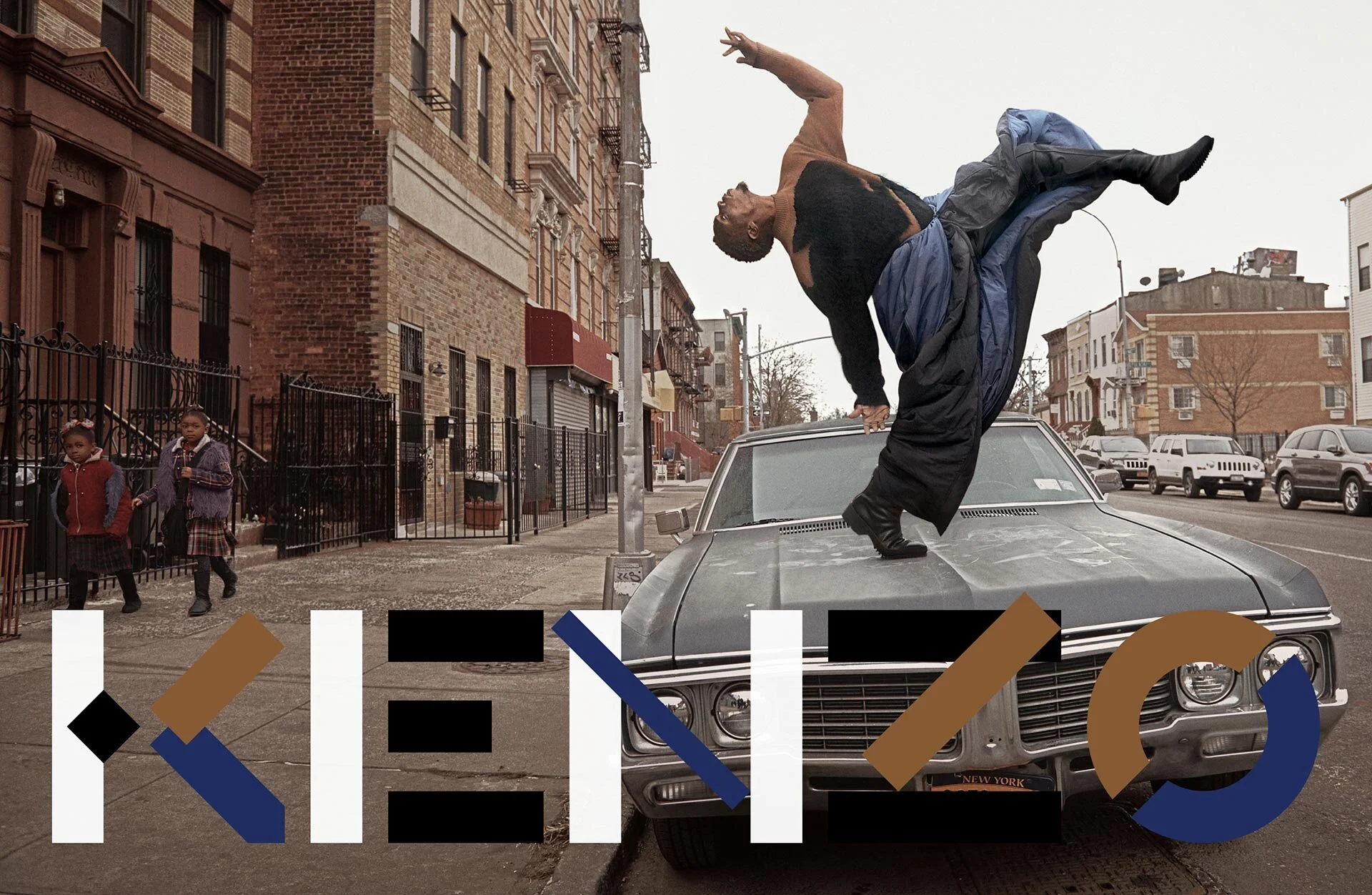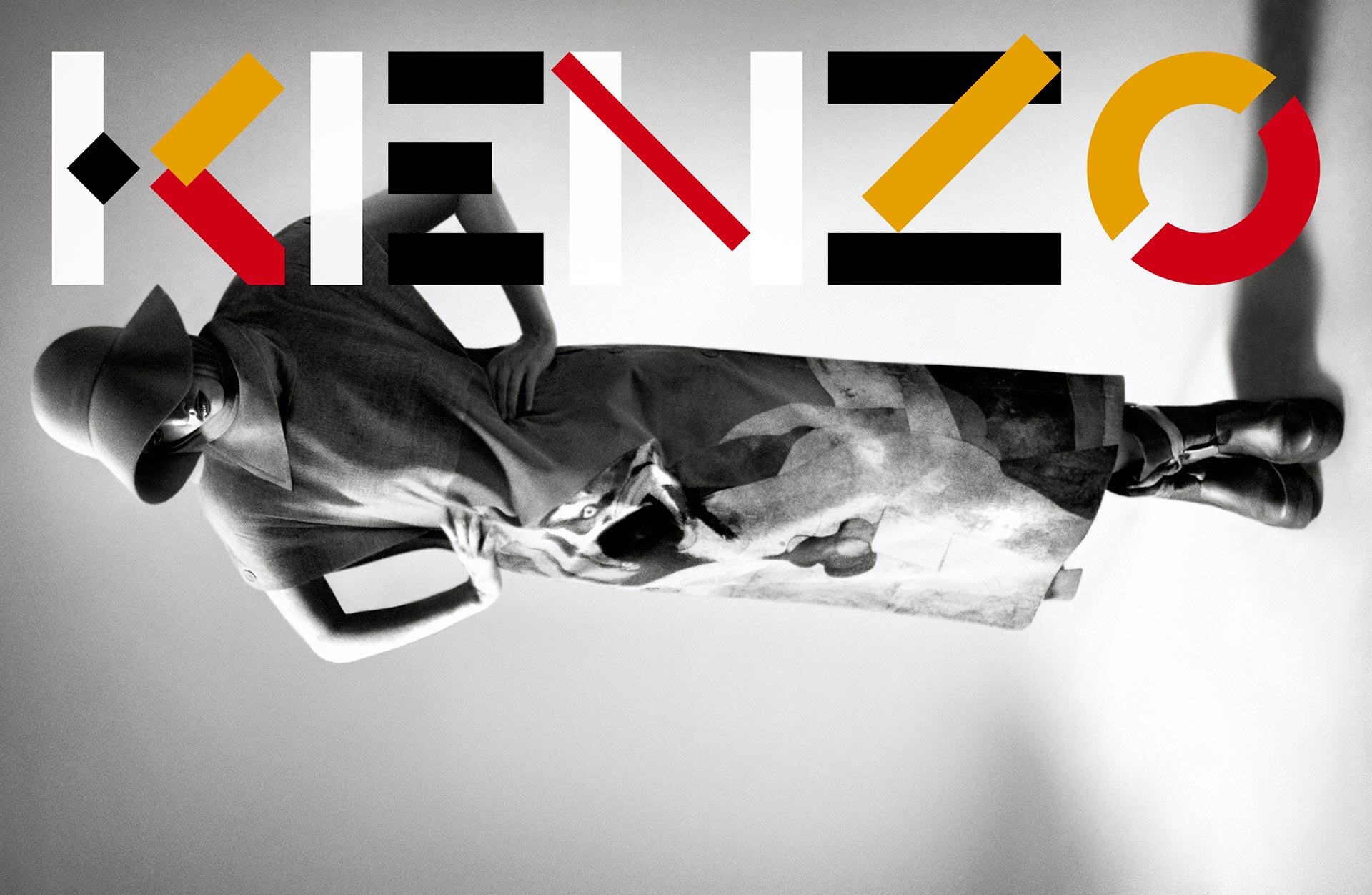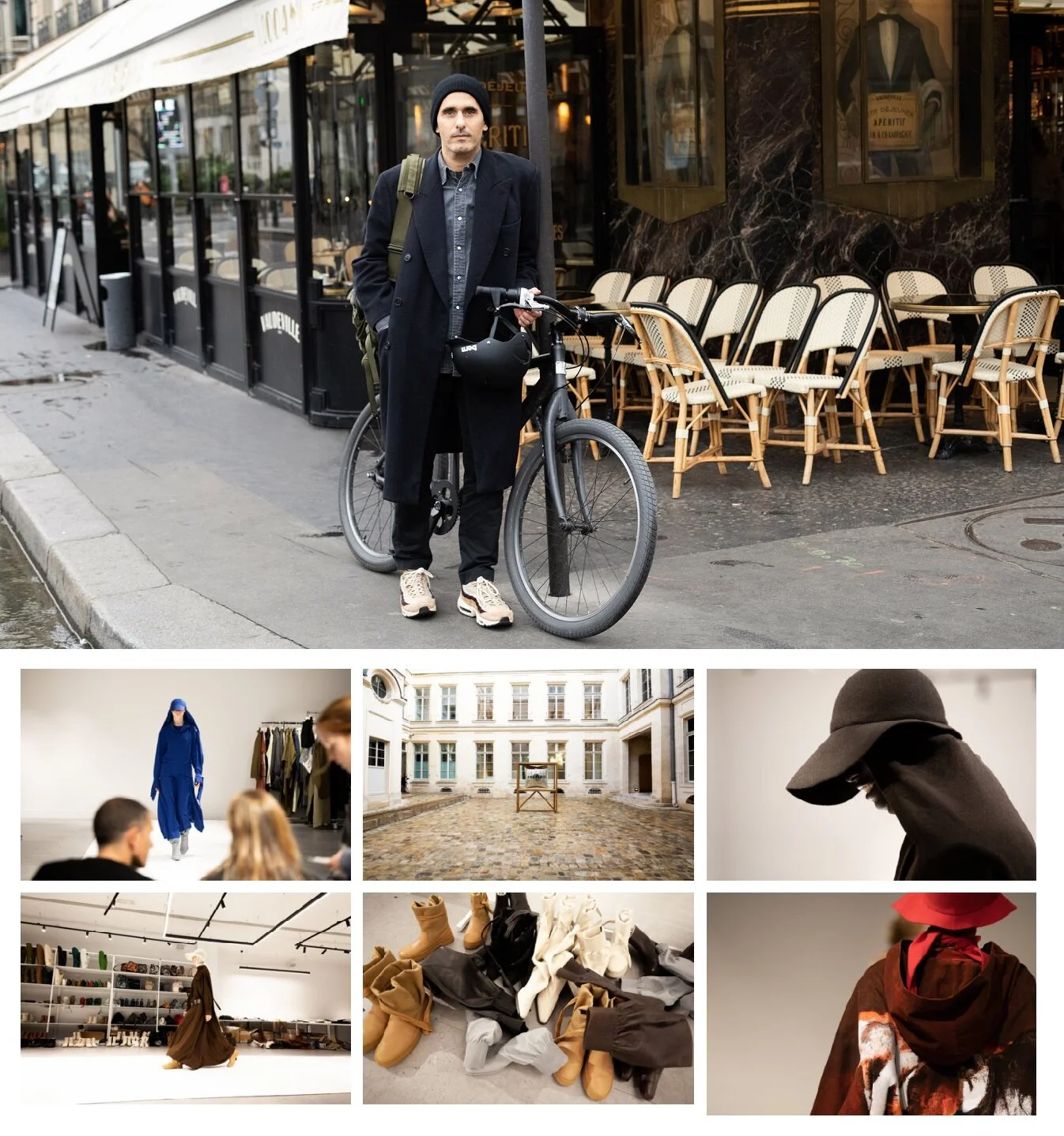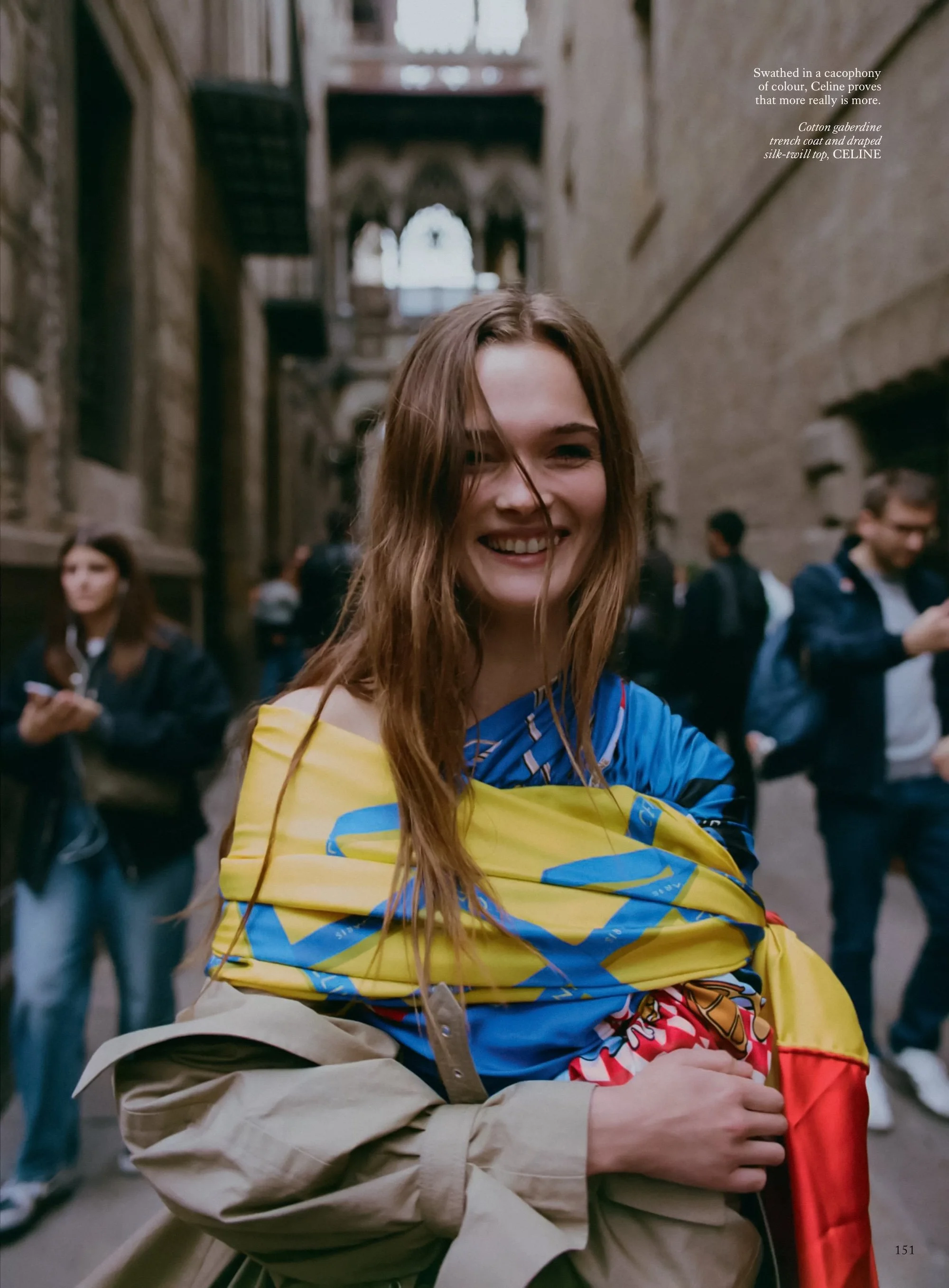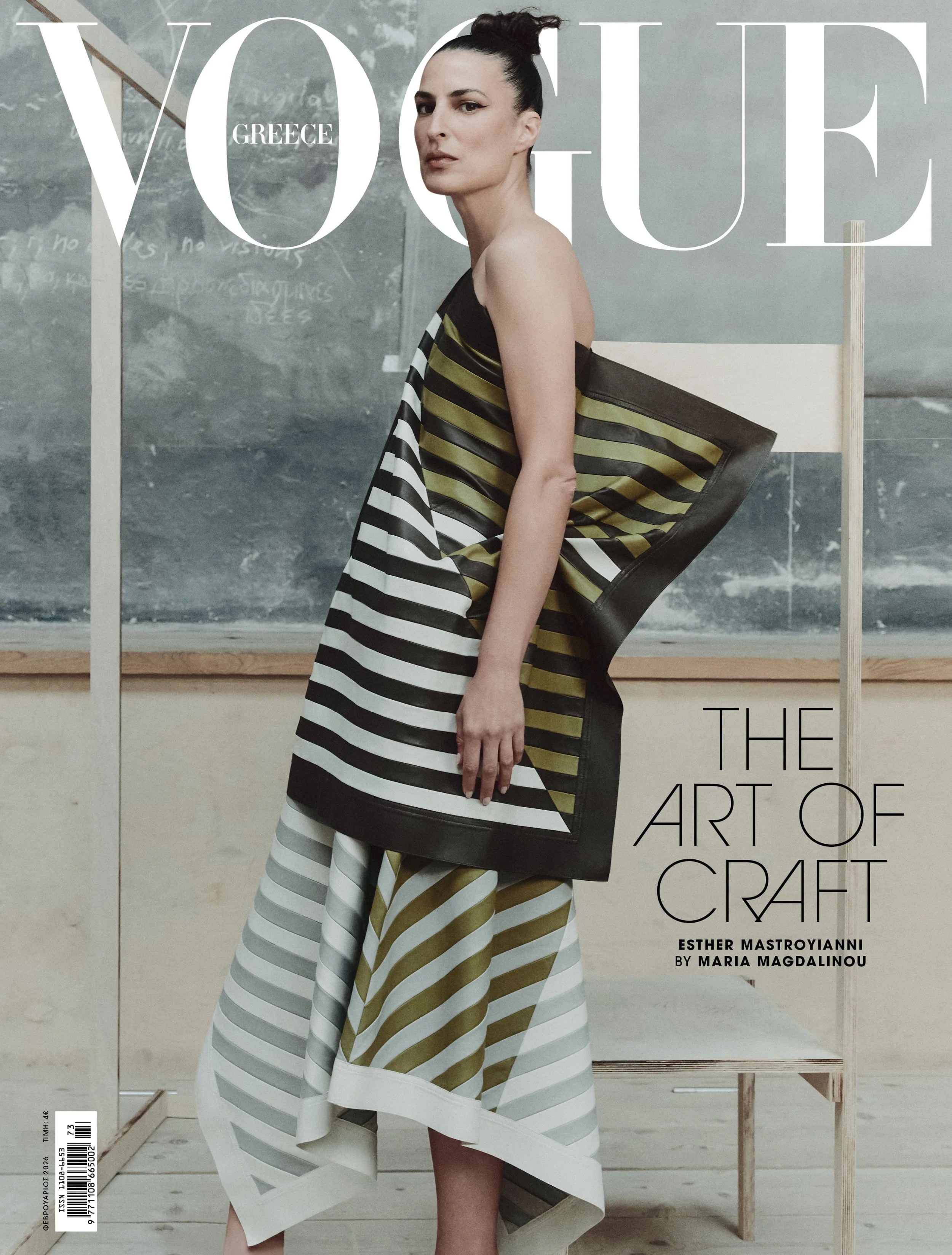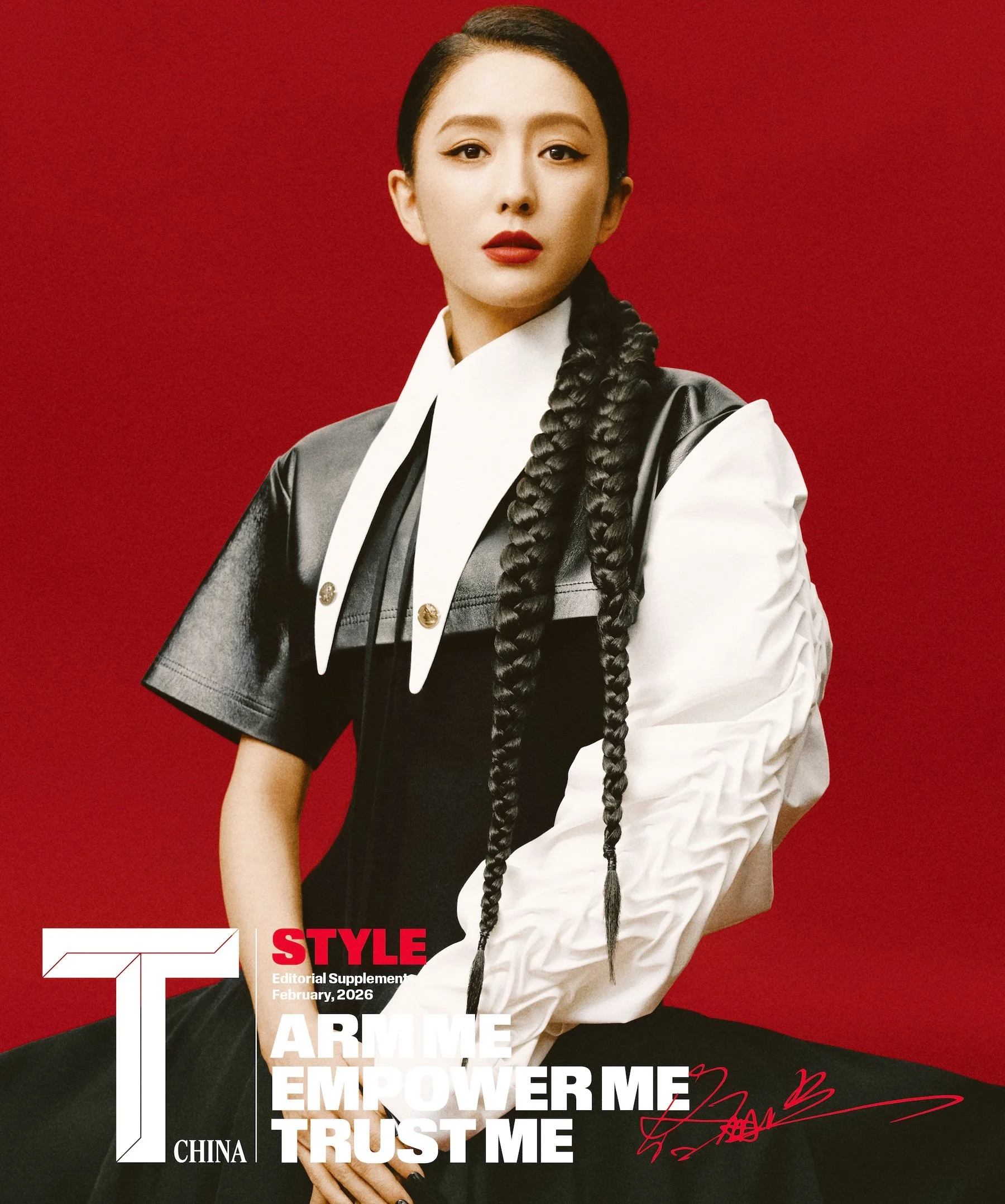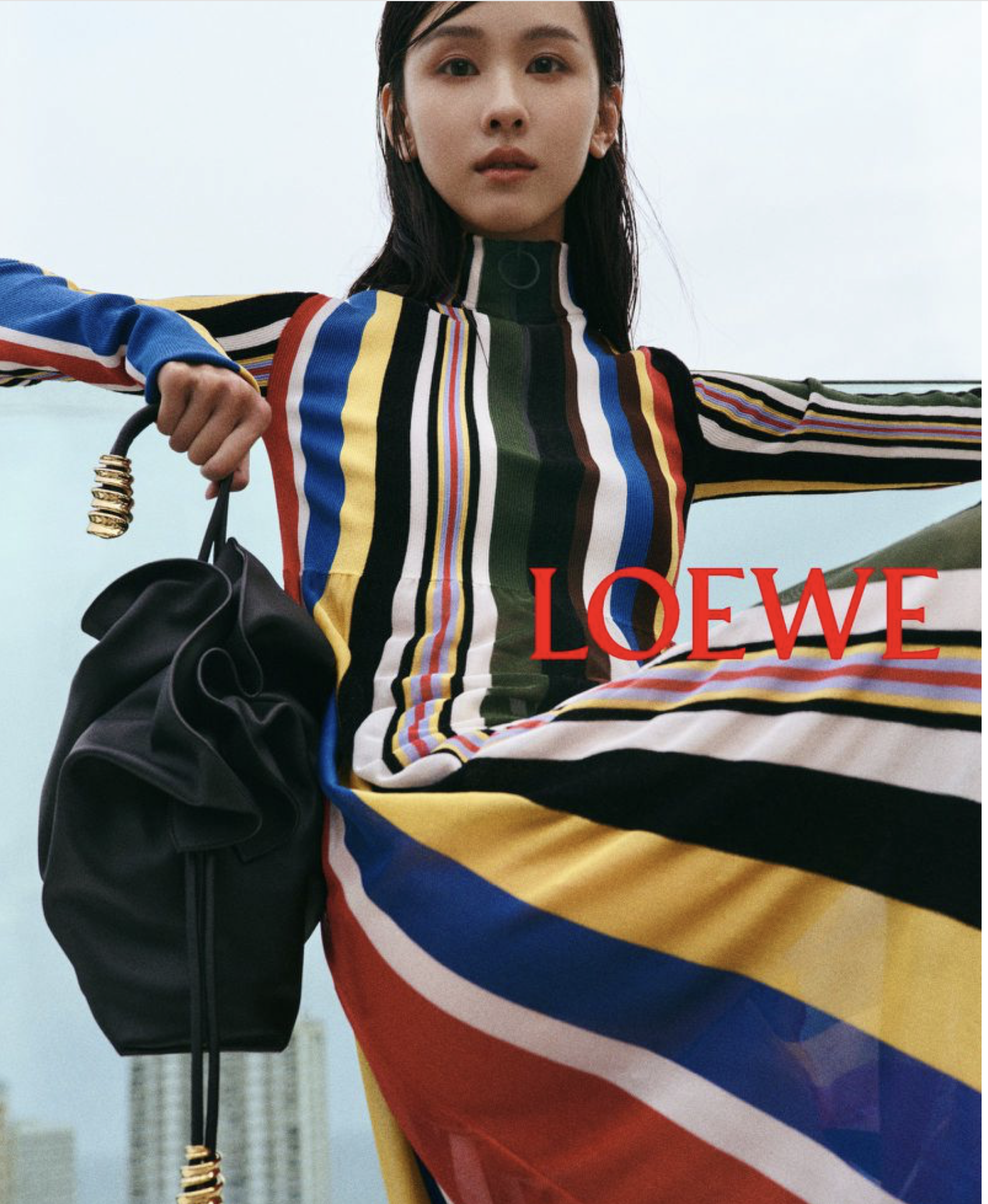Kenzo's New Era: Felipe Oliveira Baptista + Glen Luchford Launch Fall 2020 Campaign
/KENZO unveils its first Fall 2020 campaign by Portuguese fashion designer Felipe Oliveira Baptista. The original, pre-COVID campaign plan intended a photographic road trip in The Azores, Baptista’s original home. Photographer Glen Luchford (IG) and the designer’s long-term partner, stylist Jane How would be Baptista’s campaign companions. And then COVID struck.
“When could we travel? Be together again?” were unanswered and predominant questions. We were to collaborate and put a campaign together, but how?
Glen Luchford knew the campaign would now involve distance photography. But how could it transform into a series of original images? Into the archives — as a few select photographers lucky enough to have them — have already done. Check. Now send the clothes to New York or Los Angeles, where Luchford would shoot models in the same pose and under the same light as the vintage image. Check.
The result is a fresh campaign featuring Lara Stone, Lil Buck and Rose Valentine, as reflected in these first images. Refusing to bow to the challenging moment, the Kenzo campaign expresses the ‘Going Places’ spirit of the collection. Kenzo has always rooted itself in a youthful, nomadic style, and Baptista is ready for takeoff.
Kenzo Fall Winter 2020 Collection
From the Kenzo website, the spirit of the Fall 2020 collection. Translated into Anne-speak: Elegance isn’t typically associated with nomads — unless it’s a rugged elegance adapted for survival in formidable, weather-related conditions.
In the mid-1960s, Takada Kenzo moved from Japan to Paris, traveling by boat with stopovers in Hong Kong, Mumbai and Saigon. It was this voyage that helped inspire Kenzo’s modern nomad, global progressive spirit. Young creatives with open minds took advantage of affordable, global transportation. Like Kenzo, they set off with the same nomadic spirit born in the eponymous ready-to-wear house the designer founded in 1970.
Today Kenzo heralds a mobile wardrobe that embraces urban elegance and metamorphosis — a keyword in narrating the original spirit of the Kenzo brand.
The name of my first plant store, ‘metamorphosis’ is again a timely word in a COVID world of shaken values and environmental concerns. So many of the hopes of Kenzo-mindset progressives living in the world of The Beatles — and especially John Lennon — are well aware of the meaningless heap of shattered dreams of clean energy, women’s equality and racial justice that inspired deep convictions around global change.
Those same young people find it hard to believe that on June 20, 1979, US President Jimmy Carter unveiled 32 solar panels on the roof of the White House. Yale Climate Connections reveals the Jimmy Carter’s solar panels moment:
Self-conscious about his own idealism, or perhaps just realistic, the President gave voice to his doubts about the panels: “A generation from now, this solar heater can either be a curiosity, a museum piece, an example of a road not taken, or it can be a small part of one of the greatest and most exciting adventures ever undertaken by the American people.”
The point of all this was simple, Carter said. America was to harness “the power of the sun to enrich our lives as we move away from our crippling dependence on foreign oil.”
Carter was a person of simplicity in all of his values — especially his Christian values. Yale writer John Wihbey described him as “sort of an oddball, a hybrid, an anti-political Christian proto-green who had donned a cardigan sweater, lowered the White House thermostat, and declared “Sun Day” on May 3, 1978.”
There’s no doubt that Jimmy Carter is Greta Thunberg’s vision of a good and Godly man. In 1986, then US President Ronald Reagan removed the solar panels to repair a roof leak. Reagan’s decision (and devotion to the fossil fuel industry) carried enormous political symbolism for change-makers around the world.
The Fashion Legacy of Kenzo Takada
Images by Elodie Chapuis (top) Felipe Oliveira Baptista bikes to his interview with the New York Times, Instagram and ElodieChapuis.com.
Kenzo founder Kenzo Takada died of coronavirus in Paris last month at the age of 81. The Guardian’s headline reads: Kenzo Takada remembered for style that meant ‘freedom for the woman’s body’.
Today Felipe Oliveira Baptista channels Kenzo Takada’s legacy in our global COVID moment.
“My vision for the brand is very much rooted in what Kenzo did and stood for — values that are still very relevant today,” he told T: The New York Times Style Magazine. “His designs were all about freedom of movement. While they were flamboyant, they were also very pragmatic.”
Baptista acknowledged my aforementioned “heap of chattered dreams”, speaking to the Times.
“There was something very joyful and optimistic about Kenzo then, and I want to have a nod to that,” he said, “but it’s a challenge to channel the same sentiments in 2020.” What does he want to do differently? “I think that it’s time for responsibility. When you turn on the TV and see these horrible things all the time, you think, ‘O.K., I can do things in a better way,’” he said, adding that he intends to institute more sustainable practices at the brand, including the use of organic and recycled fabrics. “Of course, I am within a structure, [Kenzo is owned by LVMH)]but it’s something that I have been thinking about a lot.”
Nearly 30 years after US President Ronald Reagan ridded the White House of solar panels, then President Barack Obama installed new ones in May 2014. To the best of my knowledge, defeated American President Donald Trump hasn’t had time to rip them off — although nothing would surprise me in the final days of his presidency.
If there’s a notable difference between today’s young progressives and older ones, it’s that the young are far more pragmatic. While generationally Baptista is not a member of the Sunrise Movement, his viewpoint reflects their sobriety and understanding that protest and glorious words are not sufficient to change deeply-embedded financial and ideological differences around what constitutes both a good and just society and good values.
If today’s Kenzo brand lovers share the spirit of “Going Places” — even if it’s only in our minds or traveling digitally in the time of COVID-19 — we know that wishing will not make change happen.
Nothing is self-evident. Two opposing camps have totally different analyses of the identical set of facts, events and situation arguments. The fact that Kenzo’s creative visionary Felipe Oliveira Baptista.rode his bike to his Times interview, suggests a deep awareness and understanding of fashion’s formidable road ahead. ~ Anne

